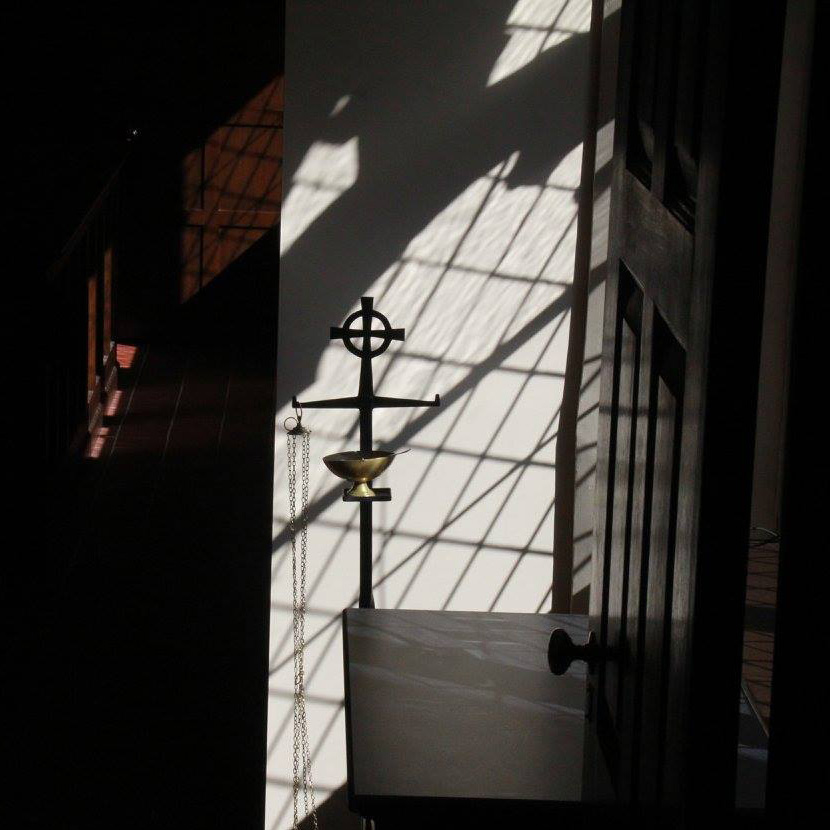My dear folk,
“Remember, O man, that thou art dust, and unto dust shalt thou return.” I can’t help but think that those words, so familiar to us from their use at the imposition of ashes on Ash Wednesday as we begin the season of Lent, might be equally the call to our observation of Advent. Who are we; what shall we be, but for God’s saving grace. We see this emphasis reflected in the four traditional themes of Advent:
{grid8} Death – that the time of this earthly pilgrimage is limited, this is not our final home.
Judgement – that our decisions and actions have significance. (There is most certainly forgiveness, but that comes later in the story. First there needs to be the recognition of something which needs forgiveness for that forgiveness to have any meaning.
Heaven – the eternal bliss of those souls who put their faith in Jesus.
Hell – existence without God, the desolation of those souls who have not believed in Jesus.
Nowadays these themes are far too seldom preached on or held before the faithful. We don’t like to think about death, judgement is such a negative and dreary topic, and, of course, everyone is going to heaven (our loved ones are going to be angels in heaven, aren’t they?), and hell is just not to be mentioned.
If we give any regard to our tradition, the wisdom handed on to us by those who have struggled through human life before our time, we are pushed toward repentance and renewal. Advent’s themes inexorably drive us toward that same goal as do those of Ash Wednesday. But the way that our culture encourages, and so many of us actually act, transforms Advent by an incessant and premature focus Christmas itself. Even before the First Sunday of Advent we are being urged to buy those presents, everything from the latest fad through luxury automobiles. Religious carols tug at our heartstrings. Secular ones urge us to “have a holly, jolly Christmas” or celebrate “simply having a wonderful Christmas time.” We navigate the perilous waters of what holiday greeting to use. It may be pretty easy with our friends, but what about co-workers or even the people working in stores? I must say that I am struck by something which happens when I do our grocery shopping this time of year. As the checkers hand me the receipt, they almost always say something like “happy holidays!” I’m standing there in a black suit, black shirt, clerical collar, and a cross on my lapel: which holiday might one suppose I’m going to be celebrating? Yes, I know it is politeness on their part – and probably trying to be sure not to inadvertently offend someone who would not want the religious greeting. Best to say the same thing to everyone. But I do find it entertaining, if a little exasperating.
Of course, Advent is a penitential season. Not as long or as rigorous as Lent, to be sure. The purple vestments appear, the Great Litany is used, although the Gloria in excelsis is suppressed, the use of Alleluia is not (as I said, it’s not as rigorously penitential). And an essential part of our penitence is taking stock of where we are and striving to remedy the defects which we find. When we recognize that we are fallen creatures – that we’ve sinned in thought, word, and deed, in things done and left undone, that there is no health in us. God, in his great love for us, in his unfathomable mercy, forgives us, gives us new life in Christ Jesus, and empowers us by the gift of his Holy Spirit. But diagnosis precedes the cure, penitent preparation goes before the joyful reception of his bountiful loving-kindness. Advent is that preparation for Christmas, for all its joy and wonder.
This year we do get of a bit of an easy in one sense: at only twenty-two days, Advent is as short as it can. We pay for that shortness by having Christmas Eve on Sunday night. And, yes, one should be at Mass both Sunday morning for the Fourth Sunday of Advent and again to celebrate our Lord’s birth either on Christmas Eve or on Christmas Day. So make good use of this shorted Advent. Don’t shortchange yourself. And come to the joy of this Christmastide with renewed repentance and a deeper sense of God’s love for you. Make this Advent one that makes a difference spiritually.
Yours, in his service,
Michael J. Godderz+
This letter includes a correction. I previously noted that the Gloria in excelsis was not surpressed. This has been corrected to accuratly reflect that the Gloria was suppressed; it the use of the Alleluia that was not.
{/grid8}{grid4_last}

(Ruth Godderz)
{/grid4_last}

